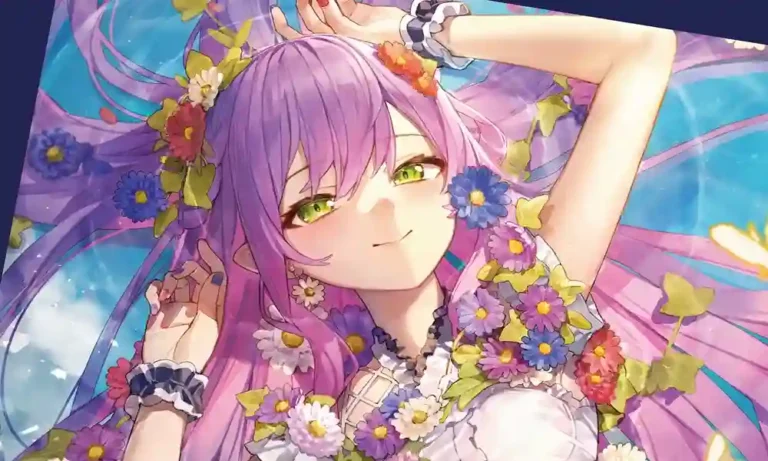
Okay, so, Encanto—the magical film that somehow made us all wish we could control flowers with a flick of the wrist (if only, right?). But it’s more than just a pretty, animated Disney flick. There’s depth. There’s power. And no, I’m not talking about my coffee addiction. I’m talking about Isabela Madrigal, the perfect one. Or at least, she was.
Let’s break it down. Why is Isabela Encanto so important, and what does her power mean? Spoiler alert: It’s not just about flowers.
Who is Isabela Encanto, Anyway?
If you’ve seen Encanto, you know who Isabela is. She’s basically the family’s shining star. “Perfect” in every way—at least, that’s what everyone expects her to be. You know the type. The one who can create these perfect, symmetrical flowers with zero effort. Sigh. Wouldn’t that be nice? I’ve tried growing herbs once (RIP, Gary, my basil plant, 2020-2020).
But seriously, Isabela’s powers are seriously neat, at least on the outside. She has the ability to make anything she touches bloom into beautiful, symmetrical flowers. We’re talkin’ roses, ivy, maybe even the occasional lilac. Sounds perfect, right? But here’s where things get messy…
The Power: More Than Just Pretty Flowers
Alright, you ready for this? Fast forward to when we realize that Isabela’s “perfect” powers are, well, not so perfect after all. You think creating flawless plants would be awesome, right? But her gift actually symbolizes something pretty intense: the crushing weight of perfectionism.
She can only create perfectly neat, symmetrical plants. Think of it like trying to cook a five-course meal on Instagram, but you can’t use anything that doesn’t have the right lighting. In her case, she’s not allowed to grow anything wild, messy, or “ugly.” Which, let’s be honest, sounds exhausting.
I’m pretty sure even my houseplants, the ones that are supposed to be “low-maintenance,” give me side-eye every time I forget to water them.
Anyway, fast forward to the real turning point. Isabela has an “aha” moment (with some help from her sister Mirabel, of course). She realizes she doesn’t have to be perfect. She can embrace chaos. She can create anything—cactus flowers, vines, or even plants that don’t follow the “rules.”
Why Isabela’s Powers Are the Ultimate Symbol of Pressure
So, here’s the thing. Isabela’s power? It’s a reflection of societal and familial expectations, especially for women or eldest children. The perfect daughter, the perfect sister. Yeah, that’s Isabela. For a lot of people, this rings true. Anyone who’s ever felt like they had to be the “good kid” might feel this. Isabela is that person. She’s the one who keeps it together, no matter how cracked her facade might be underneath.
In a sense, she’s trapped by the belief that only perfection is acceptable. This is something a lot of people—myself included, on more than one occasion—struggle with. Remember the time I tried to make a lasagna from scratch? It was supposed to be “perfect.” Fast forward past the lasagna crisis and… now we just order takeout.
Anyway, back to Isabela. Her flowers symbolize control, symmetry, and external beauty. But deep down? It’s all an act. She doesn’t get to be her authentic self.
From Control to Freedom: The Shift in Her Power
Okay, here’s the kicker. Isabela’s world—and her powers—change dramatically when she starts to embrace imperfection. She’s not just about the flawless flowers anymore. She lets go of her need to control everything. This is when things get cool. No more symmetrical roses. Now, we’ve got wild vines, cactus flowers, and whatever she feels like. Who knew plant life could be such an act of rebellion?
Isabela’s new plant style? It’s chaotic. Wild. Unpredictable. Kinda like the Instagram reels of someone who’s done with filters. (Guilty as charged.) There’s freedom in this messiness. I mean, it’s the same as when I throw on a hoodie and messy bun for a “zoom call”—and by that, I mean every single day.
Isabela Encanto: A Story of Breaking Free from Perfection
This, right here, is where the symbolism behind Isabela Encanto’s powers really gets juicy. Her shift in powers mirrors something we all need to embrace—freedom from perfectionism. It’s a little like that moment when you realize you can eat a burger in the car without worrying about getting ketchup on your shirt. (Ketchup stains are a sign of a good time, y’all.)
Isabela goes from representing the idea of perfection—think flawless flowers, clean lines, and perfect symmetry—to embracing wild growth and color. Her transformation shows how liberating it can be when you stop worrying about what everyone else thinks, and just let things be.
Cultural and Emotional Representation
Here’s where I start getting a little more real. For a lot of people (especially in Latinx cultures), Isabela’s story hits home. She’s the golden child. The one everyone admires and expects to succeed, always. It’s like the pressure we put on the eldest sibling. The pressure’s there, whether you want it or not.
But here’s the good news: Isabela’s whole journey is about breaking out of that mold. It’s about recognizing that you’re allowed to be yourself, even if that means being a little “offbeat.” After all, my dog gets more compliments when he’s shedding hair all over my white couch than when he’s freshly groomed. Go figure.
The Psychology of Isabela: Perfectionism, Anxiety, and Growth
I’ve spent a lot of time thinking about why perfectionism messes with our heads. And I’m not talking about getting that perfect flat lay for your Instagram story. I’m talking about the real, heavy stuff—like trying to be everything for everyone.
Isabela’s story, for me, resonates with that kind of pressure. She’s expected to be flawless, which leads to anxiety. The whole “I have to be perfect or I’ll disappoint everyone” mindset? Yeah, that’s straight-up toxic. But when she starts to embrace imperfection, her stress melts away. And I’m not saying I’ve solved my life’s problems with some cactus succulents (yet), but there’s something powerful in letting go of that “perfect image.”
Isabela Encanto: The Impact of Her Power on Fans
So, what does all of this mean for the people watching? Well, for me, it’s kind of like my first herb garden experience. I tried growing mint, but instead of mint, I got a pile of wilted green mush. Isabela Encanto shows us that it’s okay if your “garden” doesn’t look like the magazines. Perfection isn’t the endgame. You can’t get there by following everyone’s rules.
Final Thoughts: Why Isabela’s Power Matters
Okay, so I’ll leave you with this: Isabela Encanto isn’t just about flowers or family drama. She’s about breaking out of that suffocating box and being unapologetically you. We all have our own “powers,” whether they’re perfect or messy or somewhere in between. And just like Isabela, the real magic comes when we stop pretending to be something we’re not.
Key Takeaways:
- Isabela Encanto starts as the picture of perfection but learns to embrace imperfection.
- Her power reflects societal and family pressures, particularly in Latinx cultures.
- The shift from control to freedom is a powerful metaphor for letting go of unrealistic expectations.
- Her transformation symbolizes the importance of self-expression and authenticity.
Fun fact: Did you know that in the Victorian era, they believed talking to your plants would keep you sane? Honestly, after I spilled coffee on my cactus—thanks for nothing, Gary—I talk to mine more than I care to admit.
Anyway, if you haven’t watched Encanto yet, do yourself a favor. Just don’t expect your houseplants to start blooming magical flowers—trust me, I’ve tried.



